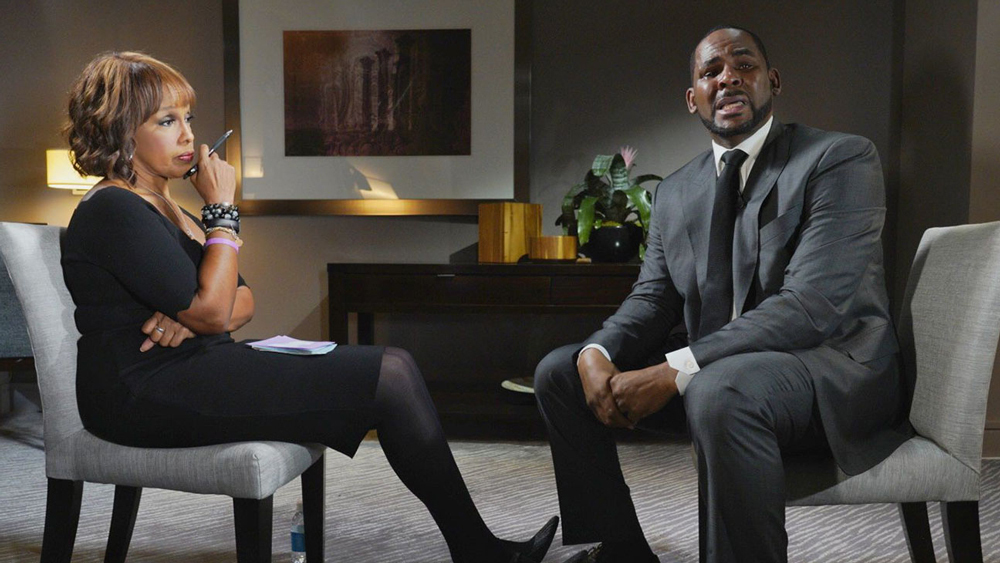Handling Conflict
A thread https://abs.twimg.com/emoji/v2/... draggable="false" alt="⬇️" title="Pfeil nach unten" aria-label="Emoji: Pfeil nach unten"> http://rokleader.com/2021/05/08/handling-conflict/">https://rokleader.com/2021/05/0...
https://abs.twimg.com/emoji/v2/... draggable="false" alt="⬇️" title="Pfeil nach unten" aria-label="Emoji: Pfeil nach unten"> http://rokleader.com/2021/05/08/handling-conflict/">https://rokleader.com/2021/05/0...
A thread
Many of people saw the Gayle King interview with R. Kelly, as I did. Some people were shocked by the “explosive” part of the interview, and there were many analyses of what took place during that segment. As I watched it, I actually did not pay close attention to R. Kelly.
I paid attention to Gayle King. I watched her basically remain still and composed, and I thought to myself: that is leadership. Did anyone else think that? If not, let me explain.
There’s a part of being a leader that many do not talk about. It’s what happens when a teammate has to be confronted about inappropriate behavior.
As I’ve worked with leaders (some new and some experienced), I have learned that so many people placed in leadership positions are conflict averse.
Not only has no one trained them on ways to handle conflict before taking an advanced position, but they have always had their own way of handing conflict- ignoring it. It’s what we’re taught. Think back to elementary school days.
I’m confident many people have heard this: “If you ignore X, they’ll leave you alone.” There’s a conditioning that people have been taught when it comes to conflict and it has not been unlearned. I have many talks with people in leadership about addresses employee incidents.
When asked how an incident was resolved, the responses sound like this (I’m paraphrasing):
“The employee began crying, so we never got to a resolution.”
“The employee became defensive when I had to address them about a reported incident.”
“The employee began crying, so we never got to a resolution.”
“The employee became defensive when I had to address them about a reported incident.”
“The employee redirected the topic to something else. X is a good person, so hopefully it [incident] won’t happen again.”
“The employee talked about all of the things going on in their lives, and I felt bad.”
“The employee talked about all of the things going on in their lives, and I felt bad.”
Too often, when situations such as these take place, the issue never gets resolved and that’s a problem. As leaders, part of our jobs is to address, listen to, and resolve difficult situations, which involves having challenging conversations.
That also involves, as Gayle King represented, staying on topic, regardless of the outburst. I will never forget, one of many challenging moments, having to confront a staff member about harmful behavior that was regularly reported.
I addressed the incidents and asked for the person’s side of the story. At that moment, tears fell from the employee’s face. I handed this person a tissue and waited until tears stopped (as an educator and mother, I know how to wait in silence).
When the tears faded, I went back to the topic at hand.
When I tell people this story, I am regularly met with shocked faces. Was I being mean? Was I being harsh? How in the world did I manage to stay on topic and resolve the issue? It’s pretty simple. That’s my job.
There was something that needed to be addressed and resolved, and that’s what was going to happen. When dealing with difficult situations and discussions, it’s important for leaders to know the following:
- It is okay for the person being addressed to express emotion.
- It is okay for them to cry.
- It is okay for them to get angry.
- It is okay for them to get defensive.
- It is okay for them to become frustrated.
- It is okay for them to cry.
- It is okay for them to get angry.
- It is okay for them to get defensive.
- It is okay for them to become frustrated.
It is not okay for you to not find resolution just because you’re uncomfortable. Deal with the situation calmly, respectfully, and with empathy. However, make sure that you deal with it. The person being confronted will be better for it, as will you and your organization.
And as they say on Twitter, “thank you for coming to my TED talk.”
*Disclaimer: It is also perfectly alright to have a third party present when you feel that a discussion with a particular person will be more difficult than is normally expected.
In that case, choose your third party wisely, and even consider consulting with an HR representative to make sure that everything is done with care and according to your organization’s policies.
Keep leading and be safe,
Keep leading and be safe,
This thread can be read here: http://rokleader.com/2021/05/08/handling-conflict/">https://rokleader.com/2021/05/0...

 Read on Twitter
Read on Twitter https://rokleader.com/2021/05/0..." title="Handling ConflictA thread https://abs.twimg.com/emoji/v2/... draggable="false" alt="⬇️" title="Pfeil nach unten" aria-label="Emoji: Pfeil nach unten"> https://rokleader.com/2021/05/0..." class="img-responsive" style="max-width:100%;"/>
https://rokleader.com/2021/05/0..." title="Handling ConflictA thread https://abs.twimg.com/emoji/v2/... draggable="false" alt="⬇️" title="Pfeil nach unten" aria-label="Emoji: Pfeil nach unten"> https://rokleader.com/2021/05/0..." class="img-responsive" style="max-width:100%;"/>



